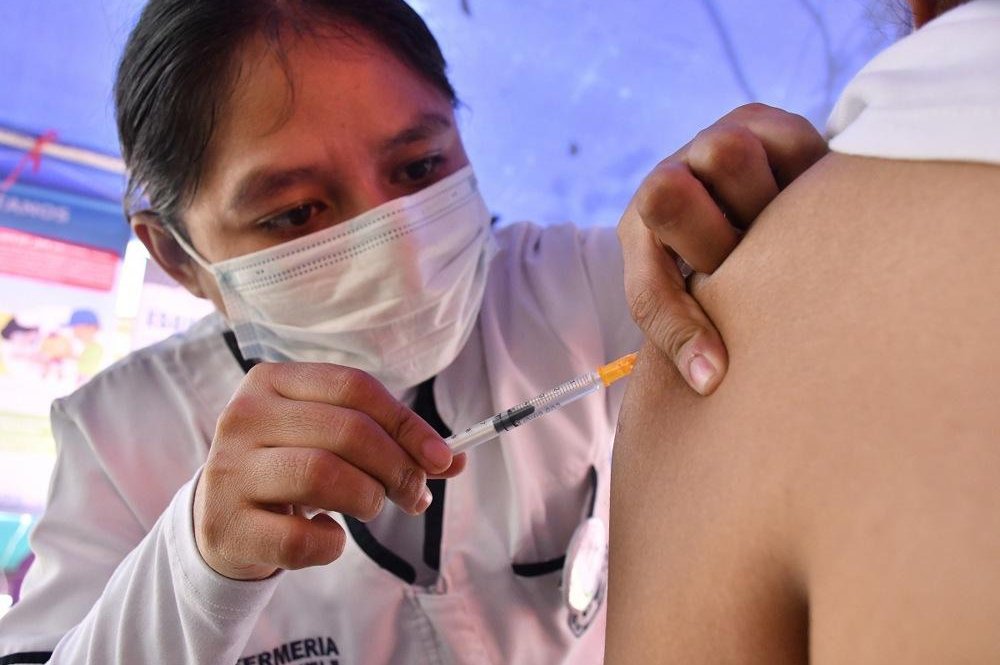A healthcare worker administers a dose of measles vaccine during a vaccination campaign in Cochabamba, Bolivia, in late June. Bolivian health authorities intensified vaccination campaigns in the nine regions of the South American country after the declaration of a national emergency due to a measles outbreak. Photo by Jorge Abrego/EPA
Aug. 15 (UPI) — Paraguay has declared a health emergency after confirming its first measles outbreak in a decade, with five unvaccinated children infected in the San Pedro department.
Health authorities said the outbreak may be linked to foreign visitors from countries with active cases and acknowledged that vaccination rates in that part of Paraguay are below recommended levels.
The outbreak began with a 5-year-old boy who was hospitalized with pneumonia, fever, cough and a skin rash. By Aug. 7, three other children in the same household had tested positive, followed by a fifth case three days later, according to the Health Ministry.
All five patients remained under observation during the incubation period, estimated at seven to 18 days.
While in Paraguay overall, the vaccination rate for measles, mumps and rubella, or MMR, is 82% for the first dose and 68% for the second, while the vaccination coverage in San Pedro is 74% for the first dose and 54% for the second — well below the 95% recommended to maintain herd immunity.
The Health Ministry deployed a National Rapid Response Team, launched targeted vaccination campaigns in the affected area and urged residents to complete their immunization schedules.
Measles is a highly contagious viral disease that can cause serious complications and death, especially in unvaccinated people.
In 2025, measles is experiencing an alarming resurgence in the Americas, reversing the trend of sustained control since the virus was declared eliminated as a public health problem in 2016.
By mid-June, the Pan American Health Organization had recorded more than 7,132 confirmed cases and 13 deaths — 29 times higher than in the same period last year.
The countries most affected include Mexico, the United States, Canada and Argentina, though outbreaks or imported cases have also been detected in nations that had gone decades without local transmission, such as Belize and Paraguay.
The increase is linked mainly to declining vaccination coverage, along with the international spread of the virus and low revaccination rates in at-risk groups.
This public health setback has forced countries in the region to strengthen epidemiological surveillance systems and launch mass vaccination campaigns for people who are unvaccinated, missing doses or need revaccination if born after 1965.
Health authorities warn that cross-border travel and communities with low immunization rates increase the risk of outbreaks spreading and becoming harder to contain.
In response, the Pan American Health Organization and the health ministries of affected countries are urging people to review and complete their vaccination schedules to break the chain of transmission and prevent the region from losing decades of progress in controlling the highly contagious disease.
